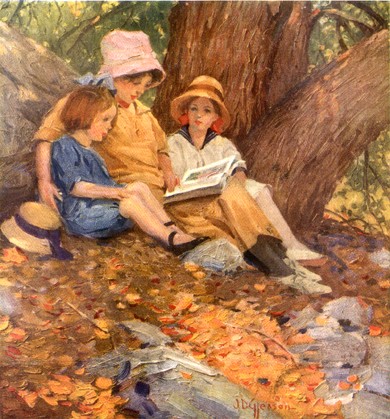Tag: deliberate practice
-

Apprenticeship in the Arts, Part 2: A Pedagogy of Craft
In my previous article in this series on Aristotle’s intellectual virtues, I discussed the general nature of artistry or craftsmanship under the heading of apprenticeship. Aristotle’s virtue of techne, often translated ‘art’, points to our human capacity to make things, to produce things in the world. Words like ‘artistry’ or ‘craftsmanship’ help to convey in…
-

Fostering Grit Through Charlotte Mason’s Practice of Habit Training
We write and speak often at Educational Renaissance about the importance of cultivating good habits (you can listen to our podcast on habit training here). Habits are, as Charlotte Mason put it, the railways of the good life (Home Education, p. 101). A person with good habits experiences a life of ease, while a person…
-

Apprenticeship in the Arts, Part 1: Traditions and Divisions
The previous two articles have paved the way both for our discussion of Aristotle’s intellectual virtue of techne, artistry or craftsmanship, as well as the intellectual virtue of phronesis, practical wisdom or prudence. In a strict sense, the analogy between artistry and morality is aside from our central argument, which consists in working out the…
-

Practicing in the Dark or the Day: Well-worn Paths or Bushwalking, Artistry and Moral Virtue Continued
In my last article we explored the analogy between Aristotle’s intellectual virtue of artistry or craftsmanship (Greek: techne) and moral virtue, taking our cue from the Nicomachean Ethics book II. Along the way we discovered the foundation for these two types of excellence in habit development or the neural networks of the brain. Excellence, according…
-

Moral Virtue and the Intellectual Virtue of Artistry or Craftsmanship
It might seem strange after the paradigm delineated above to focus our attention back on intellectual virtues alone, just after arguing for the holistic Christian purpose of education: the cultivation of moral, intellectual and spiritual virtues. But it is impossible to do everything in a single series or book. The cultivation of moral virtues requires…
-

Human Development, Part 3: Get in the Zone
It is a dangerous thing to become a Jedi padawan. The training and trials are extremely difficult; one might say almost impossible. Qui-Gon Jin tells Anakin Skywalker, “Anakin, training to be a Jedi is not an easy challenge, and even if you succeed, it’s a hard life” (from Star Wars: Episode 1 – The Phantom…
-

Bloom’s Taxonomy and the Importance of Objectives: 3 Blessings of Bloom’s
“Would you tell me, please, which way I ought to go from here?”“That depends a good deal on where you want to get to,” said the Cat.“I don’t much care where–” said Alice.“Then it doesn’t matter which way you go,” said the Cat.“–so long as I get SOMEWHERE,” Alice added as an explanation.“Oh, you’re sure…
-

The Art of Learning: Four Principles from Josh Waitzkin’s Book
My mother-in-law feeds my addiction to books. For over a decade she has worked at a used bookstore, and often shows up at family events with a stack of books for me to add to my personal library. She now also supplies my friends and my school. Jason was recently the beneficiary of her generosity,…


